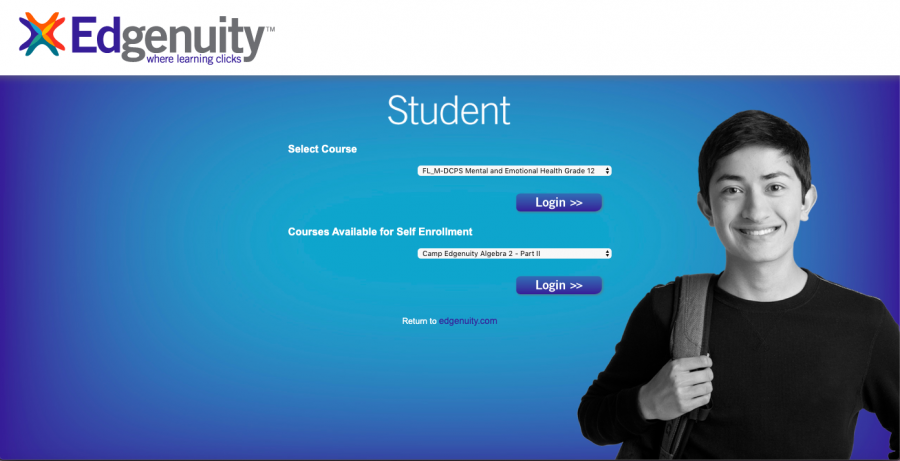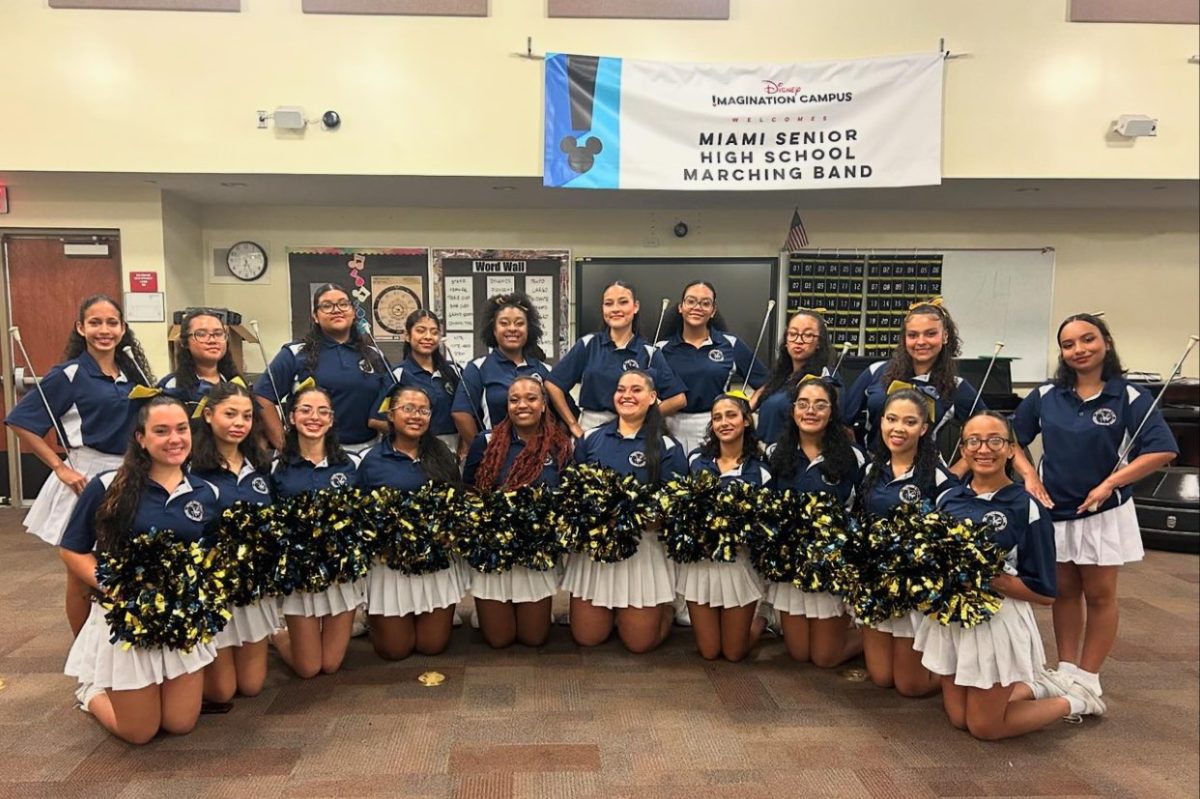Improving School Safety with Mandatory Mental Health Courses
June 3, 2020
Mental health has been a hot topic among students in the past few years as a result of several tragic events that people believe were preventable. Many have called for legislators to act quickly in response to the growing mental health crises we are seeing in schools, and they did by creating a new online course for Florida students to take that included various subtopics of mental health. However, students and school faculty have mixed views on this course.
How would the course work?
On July 17th, 2019, the State Board of Education voted for all public schools in Florida to provide students in grades 6-12 a minimum of five hours of mental and emotional health instruction. This came in the form of Edgenuity videos that were grouped into modules, each grade having a different set of modules to complete. Each school district had the freedom to decide how this new instruction would be delivered; for example, Miami-Dade County Public Schools opted to have this new course implemented through students’ English class. The curriculum includes awareness of signs and symptoms, the process for getting or seeking help for themselves or others, awareness of resources, and what to do or say to peers struggling with mental health disorders.
This new mandate for Florida schools was one of many that came after the tragic Marjory Stoneman Douglass shooting. Florida lawmakers have been allocating funds for all types of resources that aim to prevent mental health crises in schools – school police, TRUST counselors, etc.
School administrators are optimistic about course effectiveness
An issue that troubled administrators was the length of the course and when it was supposed to be taught. Not only did it take five hours away from a core class, but it was to be taught around a crucial part of the year – testing.
12th grade assistant principal Ms. Leal said, “The timeframe was tight and right before testing began so there was a collective concern that instructional time would be impacted. We were able to make the best of the timeframe and provide the students with the mental health course that was also necessary for their social emotional well-being.”
Both Ms. Leal and assistant principal Ms. Barreto hoped all students would listen carefully to the videos and be able to take something away from them.
“My hope is that students become more aware of others and the impact they may be having on each other and their emotional welfare.” Ms. Barreto said.
In terms of success, Ms. Leal believes that the videos worked well. She also credits the counseling department at Miami High for being available to students who needed them.
She said, “Mental health is a priority for us at Miami High, and our student services department is always here to support students.”
“Mental health is a priority for us at Miami High, and our student services department is alwayshere to support students,” Ms. Leal, 12 th grade assistant principal
Students share their experiences taking the course
Multiple students voiced their appreciation for these videos and felt it was an important course for students to take.
Senior Monica Ginarte said, “If students really took the time to pay attention to the videos, they probably learned really valuable tips to navigate conversations surrounding mental health as well as remaining calm in times of crisis.”
Junior Karla Peralta appreciated that the course was able to get students to start speaking more on their experiences with mental illness and begin seeking help.
Ashley Peña, a freshman who stated she struggles with her mental health, said the videos that talked about self-harm and not being alone were helpful.
“I don’t think the course was a waste of time, and it offered advice for future situations,” she said.
Many students, however, also expressed concern over the way the mental health course was delivered. Most of these critiques arose from the fact that they felt it wasn’t effective in creating the level of intimacy that was necessary in a dialogue concerning mental health topics.
Sophomore Brandon Ayuso claimed, “I felt like it wasn’t as introspective as people were making it out to be. By the end, I still felt like it was a waste of time,” he said.
Freshman Yamila Diaz stated, “We barely listen to teachers when they tell us to talk to counselors; these mental health videos pretty much had the same effect. They gave us advice that I get from my family and friends all the time.”
Freshman Kevin Carias criticized how detached the speakers in the video were. He stated, “It felt like they were reciting everything from a Wikipedia article. No change can come from that. Actual systemic change has to occur, and mental health services must be afforded to students.
“It felt like they were reciting everything from a Wikipedia article. No change can come fromthat. Actual systemic change has to occur, and mental health services must be afforded tostudents,” Freshman Kevin Carias.







David Mancuso • Feb 2, 2024 at 4:37 am
Thank you, Yaneilys Ayuso, for shedding light on the crucial topic of improving school safety through mandatory mental health courses. Your article, as the founder and principal of Origins Wellness Group telemedicine health clinic serving clients across Florida and the USA, provides valuable insights into the challenges and efforts in addressing mental health issues among students. It is incredibly useful for all stakeholders involved in promoting mental well-being in schools.